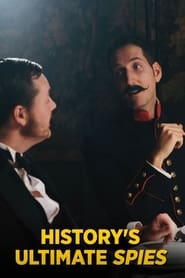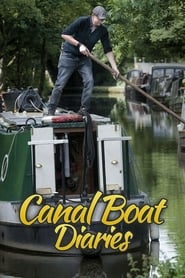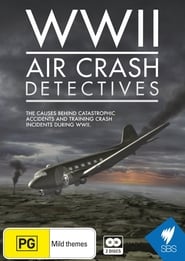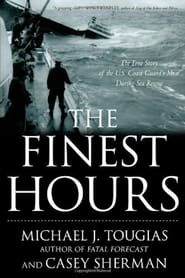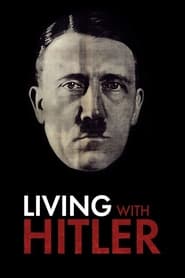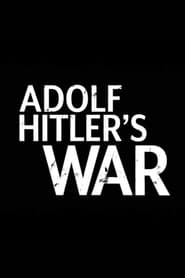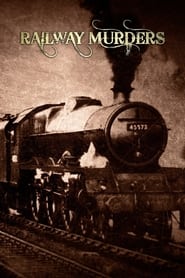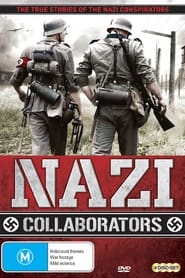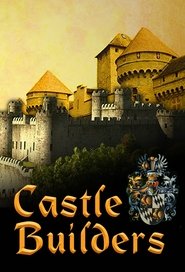U Yesterday TV Series - Page 2
-
Nicholas and Alexandra
2018
The complex love story of Tsar Nicholas II and his wife, the Empress Alexandra. Through their personally revealing letters, explore the couple's role in the lead up to the Russian Revolution of 1917, which led to their eventual brutal and tragic executions. -
Tony Robinson's Marvellous Machines
2023
Sir Tony Robinson travels the world to explore the most unusual and innovative machines and vehicles in this series packed with exciting stunts and epic challenges. -
Underground Marvels
2019
star 6Historians, engineers, and experts take a look at the underground structures, systems, and phenomena that exist beneath our feet. -
History's Ultimate Spies
2015
The stories of History's Ultimate Spies are woven around many notorious plots and infamous characters, and they'll feature in a series that delves into the psyche of the men and women who set up the networks - or destroyed them. -
Canal Boat Diaries
2019
star 9.5Travelling through England’s landscapes, towns and villages, Robbie Cumming offers a personal take on life aboard his narrowboat the Naughty Lass. -
WWII Air Crash Detectives
2014
star 2.5Garth Barnard has a lifelong passion and unshakeable resolve to investigate how thousands of young Airmen from the Second World War died in catastrophic air accidents and training crashes. -
Their Finest Hour
2008
Their Finest Hour
2008
The story of the unsung heroes of World War Two – the workers who made the aircraft, built the ships, dug the coal, kept the railways running, rescued the injured and produced the food that Britain needed to win the war. -
Scouting for Toys
2022
star 7Behind the scenes at internationally renowned Vectis Toys Auctioneers in Teesside, where buyers and sellers from all over the world come to trade every toy imaginable. -
Decades That Defined Us
2022
Going on a journey through the sixties, seventies, and eighties through archive footage, and recorded testimony of the time, to rediscover the decades that defined us. -
Living with Hitler
2021
star 9.2The Nazi era from 1993 to 1945 is illustrated through archived material, with insights and anecdotes provided by world-leading experts and commentators. -
Private Lives of the Monarchs
2017
star 7Tracy Borman reveals the intimate details of the monarchs, to find out what really went on in their private lives. -
Great British Landmark Fixers
2021
star 1Remarkable feats of British engineering require remarkable levels of maintenance and repairs to keep them in their grandiose state. With incredible levels of access to some key restoration and maintenance projects on some of Britain's most well-known buildings and structures, this series shows the detailed knowledge, craftsmanship and engineering ingenuity that is necessary to keep these important British monuments standing. -
Adolf Hitler's War
2020
Adolf Hitler's War
2020
Hitler was determined to extend Germany eastwards to make Germany a great continental power. Hitler's policy, based on a racist ideology, planned to eliminate or enslave the population that stood in the way of the Reich. It was this determination that propelled the world into war. Hitler believed that the conquest territories including Poland, the Belarussian and Ukrainian Soviet Socialist Republics, and the Baltic States "for the German people" was his destiny. -
Underground Worlds
2019
star 8British documentary series exploring incredible feats of human endeavour underground, revealing what people have built, where they have built it, how and why. -
World's Greatest Palaces
2019
A behind the scenes look through the corridors of power in ten of the most opulent and historic royal residences on Earth. We reveal the stories behind the Kings and Queens who lived in these grand homes and uncover the secrets of the architects, engineers and courtiers who brought them to life. -
The Architecture the Railways Built
2020
star 4.3Railway expert and train enthusiast Tim Dunn explores the stunning architecture that lines the railway network in `The Architecture the Railways Built'. He visits stations made up of simple stone buildings, decorative Victorian grandeur, and striking glass and concrete structures, but he doesn't stop at visiting stations, as he explores every structure which owes its existence to the railway, including viaducts, railway hotels, tunnels, and the less obvious buildings such as homes, swimming pools, and Turkish baths. -
History Hunters
2020
History Hunters
2020
The series follows father-and-son team Dave and Steve Nuwar as they search for little pieces of history and the riveting tales behind them. -
Railway Murders
2021
star 8Investigating the most notorious murders ever to take place on the British railways. The cases start from 1864 with the the first murder on a British railway. -
Nazi Collaborators
2010
star 7.5As shown on TV, Nazi Collaborators explores the fascinating and often shocking tales of how individuals from all walks of life: the privileged; the political elite; ordinary working men; turned against their nations and races to fight alongside the Nazis during World War 2. Many did it for financial gain, others for the promise of elevated status. Some believed that siding with imperialist Germans offered the best chance of survival for their people, whilst others later claim they would be killed if they refused. -
The Castle Builders
2015
The Castle Builders
2015
In Medieval Europe castles were the ultimate symbol of dominance. But they also had to serve several different functions; power projection, defense of the realm, and not in the least, a glorious home for the castle's master. These three functions are examined in turn as the history unfolds of how castles evolved over the centuries to a adapt to changing demands.



